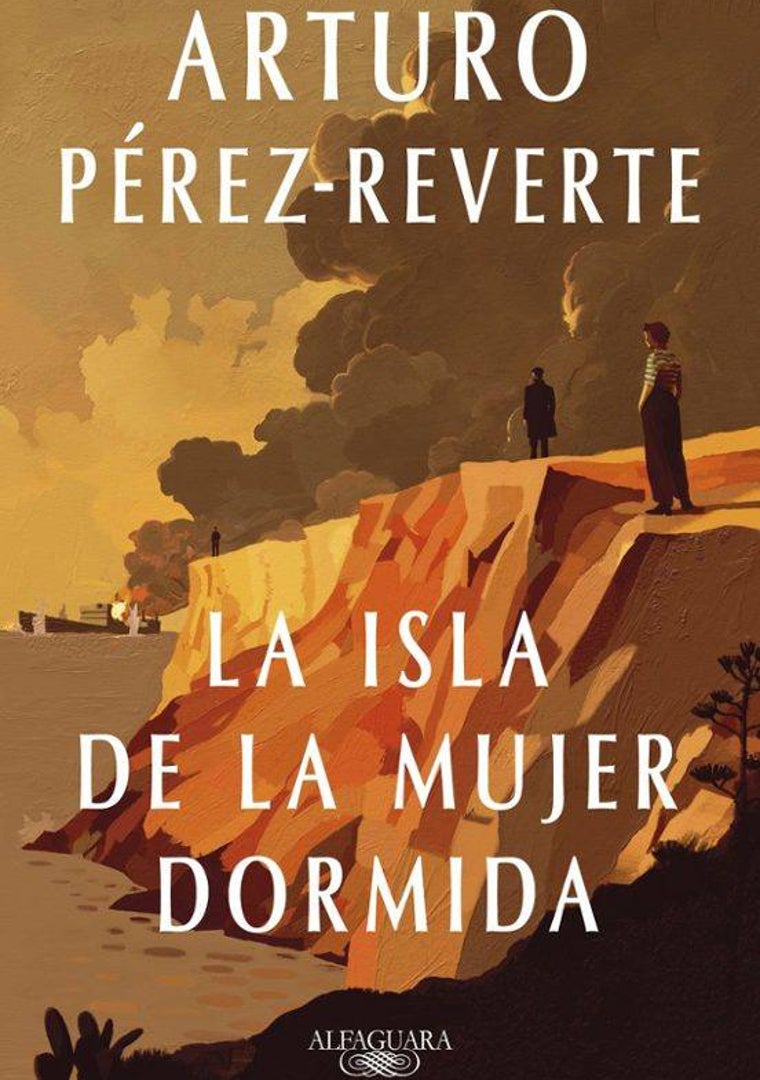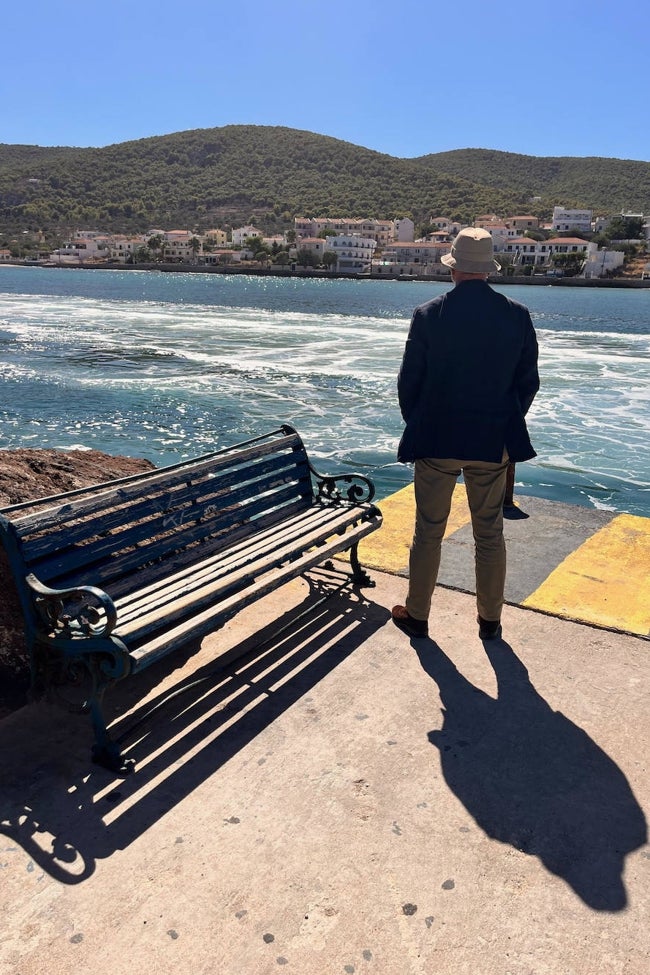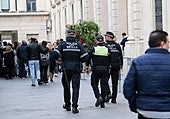“Fools Empower the Wicked”
Returns with 'The Island of the Sleeping Woman', a novel of modern corsairs with the civil war as a backdrop / "We have turned history into a pap, pasteurized and skimmed that nourishes no one and is worth nothing"
Miguel Lorenci
Atenas
Tuesday, 8 October 2024, 22:35
The young reporter Arturo Pérez-Reverte arrived in Piraeus in 1976 in search of a freighter to take him to Lebanon to cover its war. "There were only prostitutes, traffickers, and garbage; I paid a hundred dollars and reached Beirut," he recounts half a century later, now a writer and academic, at the same port. He returns to Athens to board a modern hovercraft bound for the island of Agistri with his new novel in hand. 'The Island of the Sleeping Woman' (Alfaguara) is a story of adventure and love, with the civil war as a backdrop told by the witness of a crumbling world lamenting that, today as yesterday, fools empower the wicked.
"It is thought that the war was fought only in Spain, but it was fought in the Atlantic, in the Sicilian Channel or in the Aegean, and it is not true," explains the writer on the docks of Agistri port to a group of journalists, under an unrelenting sun from which he protects himself with a hat reminiscent of Inspector Clouseau's and aided by a cane after a treacherous fall.
"It is the story of modern corsairs that I wanted to tell and which I set in the Aegean," he explains. In 1937, on an island in the Cyclades, sailor Miguel Jordán Kyriazis organizes a secret operation to torpedo Soviet merchant ships coming from the Black Sea loaded with weapons and supplies for the Republic. His life will intersect in a murky triangle with that of the island's owners, the wicked baron Pantelis Katelios and his wife Lena, a seductive mature woman determined to escape her fate.

"I do not explain the war. I write about things that happen in it, with full freedom of conscience and without submitting to ideologies," clarifies the author. "I speak of human beings in extreme situations like war, never making clear the line between good and evil," says the seasoned ex-reporter, confident that "this black-and-white thing is a lie." "I have seen many wars in twenty-one years and I know that good and evil exist in ideas, not in human beings; that truth lies in a confusing gray area. I cannot write a novel of good guys and bad guys," he assures.

He gathers in Istanbul two Spanish spies, one republican and one national who resemble Flaubert's Bouvard and Pécuchet. "They play chess and exchange information. The Francoists are good and bad just as the republicans are." He laments that people who neither lived nor knew the war "use it as a tool for opposition and confrontation when those who really lived it, our parents and grandparents, did not want to poison us to avoid contaminating us with ideologies."
Another pillar of the novel is the female character, "a defeated woman without a second chance." "There is a type of woman present in all my novels who fights heroically in a man's world with men's rules. Often she wins and other times, like this one, she loses," he says. For the writer "the male hero does not exist without a woman whose gaze makes him interesting."
Sangre y gloria
"The Mediterranean is my home," he repeats hearing the murmur of a sea calm today "that from Salamis to Lepanto has seen fighting, suffering, and dying for three thousand years." "It is the sea of blood and glory; light and shadow, reflecting like none other human condition," he affirms. "It has been crossed by slaves, conquerors, pirates, corsairs, rapists, looters, heroes, luminous beings and murderers. It is the perfect place to walk without ideological blinders and understand humanity," he assures. "Here western world was born: democracy, gods, legions, olive oil, wine and marble. It is our homeland," he summarizes.
_20241008095239-k2XD-U70587286164ujG-1920x1344@RC.jpg)
Everything repeats itself and blood bathes its waters again today. "If you read classics you see everything has already happened. We repeat astonishments: every iceberg has its 'Titanic'; every technical advance its failure. In life pain always appears: horror and suffering for which we must be more prepared," says author of novels "that show mechanisms to endure horror even if they do not overcome it."
"We are becoming less cultured more defenseless. We have denied education new generations depriving them lucidity removing from curricula tools understanding," laments. "We have turned history into pap pasteurized skimmed nourishes no one worth nothing," denounces.
"World always crumbles saw pandemic see Gaza Lebanon Ukraine; must educate pain suffering disaster hiding death evil," adds proposing listening wicked instead silencing them."Let them speak before dragging spitting killing them," proposes."When wicked speaks understand mechanism evil protect yourself silences cancels do not know what when comes grabs neck defenseless warns."
At 73 years old much life gray beard knows Pérez-Reverte battles must fight even if do not win."Very sad let bad win without opposition end always win because allies fools.Let nose bleed cost win!" claims."Wicked alone not dangerous thousand fools around make powerful.Many more fools wicked unfortunately.Wicked always negotiate bribe intelligent fool never impossible concludes."
Back Athens one those whims fate shows Pérez-Reverte our most global author.Next seat fast catamaran sits woman book hands.Could be anyone among millions but Hebrew edition 'The Dumas Club' writer signs.Explains reader new novel dreamed childhood looking sea Cartagena imagining living adventures pirate books read like 'Captain Blood' 'Black Corsair' 'Treasure Island'.




_20241008094623-U28303288222vCn-1200x840@RC.jpg)